From 08.45
REGISTRATION AND POSTER EXHIBITION
09.40 – 09.45
WELCOME ADDRESS AND INTRODUCTION
DR WILLIAM FLANNERY, Vice President and Conference Academic Coordinator
09.45 to 11.00
9.45 – 10.15
Men with psychotic illness in remand prisons
Dr Conor O’Neill – Central Mental Hospital, Dublin
Men with psychotic illnesses are greatly over-represented in prisons in Ireland, especially in remand settings. The level of accumulation is such as to represent a public health emergency. Men with mental illness are more likely to be homeless, more likely to be arrested and less likely to be granted bail, even when charged with minor, at times trivial offences. “Revolving door” people with mental illness presenting to remand prisons following repeated minor offences are more likely to be homeless and actively psychotic at the time of presentation. Court diversion services have helped to mitigate this for people charged with less serious offenders with the cooperation of community mental health services. The process is more complex for persons who have become homeless in the context of major mental illness. For many homeless psychotic young men prisons are now the default mode of access for mental health services.
This talk will describe 12 years of data in relation to remand prisoners at Ireland’s main male remand prison.
10.15 – 10.45
Approaches to the Treatment of Personality Disorders in the Forensic Context
Dr Cleo Van Velsen
Personality Disorder is a diagnosis that arouses many and complex responses. With all the difficulties associated with its classification and implications, it is essential to understanding and managing many offenders. In this paper I will outline some of the difficulties and dynamics of working with those who suffer from personality disorder but will also describe the significant strides made in treating and managing the condition. This includes not only specific interventions but also the creation of more effective systems, including the Offender Personality Disorder Pathway in England and Wales. The publication of the paper Personality Disorder: No Longer a Diagnosis of Exclusion in 2003 led to a rebirth of optimism, tempered by reality, around working with Personality Disorder – leading to positive developments in service delivery and research, often absent in other branches of mental health in times of austerity.
10.45 – 11.00
Discussion
11.00 – 11.30
COFFEE BREAK AND POSTER EXHIBITION
11.30 – 1.15
BIPOLAR DISORDER
11.30 – 12.00
Nicer than NICE?: the BAP guidelines for the management of bipolar disorder.
Dr Guy Goodwin, Professor of Psychiatry, University Department of Psychiatry, Oxford
The revised NICE Guideline for bipolar disorder was published in 2014. In principle, an evidence based approach should lead to identical recommendations when another body undertakes the same task. The British Association for Psychopharmacology also revised its bipolar guidelines in 2016 (Goodwin et al. 2016). There were important differences. These differences are worth understanding and were most marked in relation to the treatment of bipolar depression, maintenance of phamacotherapy and psychological treatment. Thus, psychological treatments were recommended as the primary modality of treatment in primary care for bipolar depression, as equivalent to medication in the management of bipolar depression in secondary care and sharing equal importance with medication in the long term (Jauhar et al. 2016). To what extent were these ‘Key priorities for implementation’ supported by evidence from clinical trials? That question will be explored and a summary presented of the BAP’s alternative take on these and other issues.
12.00 – 12.30
Mood Disorders in Liaison Psychiatry
Dr John Cooney – St James’s Hospital, Dublin
Bipolar disorder is associated with increased morbidity and mortality and a consequent need for general medical care. Vigilance is needed both in terms of mood and psychopharmacology for the practical management of the patient in integrating their care in the general hospital.
12.30 – 1.00
Pharmacological Management of Bipolar Disorder in under 18s
Dr Aditya Sharma – Institute of Neuroscience, Newcastle University and Northumberland Tyne and Wear NHS Foundation Trust
Management of paediatric (onset prior to age 18 years) bipolar disorder will be discussed in this presentation. In particular, management of (hypo)mania, depression, mixed episodes and euthymia will be discussed. Various factors including co-morbid conditions such as ADHD, Autism and emerging personality issues can impact on both the course and management of this condition. These will be discussed in addition to the use of psychotherapeutic approaches.
1.00 – 1.15
Discussion
1.15 – 1.30
ANNOUNCEMENT OF PRIZE WINNERS
NCHD Research Oral Prize
NCHD Research Prize Poster
IJPM Presentation of John Dunne Medal 2016
Dr Charles Smith 2018 Essay Competition
Faculty of Medical Psychotherapy Essay Prize
Faculty of Addictions Essay Prize
1.30 – 2.30
LUNCH
2.30 – 4.00
2.30 – 3.15
The Little Things that Matter Most in Psychiatry: An Update on Gut Microbes and their Effects on Brain Function and Host Behaviour
Dr Gerard Clarke – University College Cork
The gut microbiome can signal along the gut-brain axis to influence many fundamental aspects of brain function and behaviour of relevance to Psychiatry. This includes depression, anxiety and pain as well as host stress physiology. Psychiatric disorders, including depression, are also now linked to compositional alterations in the gut microbiome associated with prominent symptomatic features. Research efforts continue to identify the precise mechanisms underpinning these effects and to accrue the translational insights necessary to move this promising are of research towards mechanisms and clinical interventions.
3.15 – 3.30
Discussion
3.30 – 4.00
Abnormalities of the self and embodiment in the writings of Franz Kafka – Lessons for Psychiatry
Prof Femi Oyebode – University of Birmingham
Embodiment in Kafka’s Letter to Father.
It is becoming clear that human cognition including reasoning, memory, language, perception and, emotion are grounded in embodiment. Embodiment can be understood as the pattern of kinesthetic and proprioceptive experiences that are the basis of all human experience and action. In this talk I will focus on embodiment, what it means in practice and how it influences reasoning and use of language. I will use Kafka’s Letter to Father, to illustrate the complex interrelationship between abnormalities of embodiment and the use of language and concept formation.
Embodiment appears to be fundamental to the formation of concepts and the use of metaphor in concept structure. There are several examples of how our perceptual interactions, bodily actions and manipulation of objects determine and influence our concepts. These patterns of experiences are built into image schemas that are then utilized in concept formation. Furthermore, perceptual information also seems to guide reasoning. The aim in this talk is to allude to these matters by an exploration of Kafka’s works.
4.00
Discussion

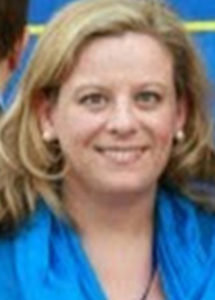 ELIZABETH BARRETT is a Consultant in Child and Adolescent Liaison Psychiatry at Children’s University Hospital Temple St in Dublin, Ireland and an Associate Professor at UCD. Following initial training in paediatric medicine, she undertook specialist training in Psychiatry and Child and Adolescent Psychiatry in Ireland and worked at Great Ormond Street and the South London and Maudsley trust before returning to Ireland. As a liaison psychiatrist, she is especially interested in the interface between mental and physical health, neuropsychiatry, eating disorders and psychosomatic medicine. As a research active department, the service supports a range of clinically oriented research exploring supporting parents of young people who self-harm, emergency psychiatry projects, supporting young people with Tics and Tourette disorders, and supporting approaches to somatic symptoms. She undertook a Masters degree in Medical Education, and sees training and interprofessional educational initiatives as crucial to early detection and intervention and longer term in achieving improved health outcomes for young people. An active contributor to undergraduate and postgraduate teaching programmes in Ireland for paediatric and psychiatry trainees, she is a current trainer for Psychiatry BST and HST trainees, and for Paediatric HST trainees. She hosts Balint groups for Paediatric, psychiatry and surgical postgraduate groups. Since 2017 she is the Clinical Lead for Schwartz rounds in the paediatric hospital and the Lead for the National Paediatric Hospital Project Psychological medicine group. At UCD she leads a Narrative in Medicine project called MindReading with medical humanities colleagues at the Universities of Oxford and Birmingham.
ELIZABETH BARRETT is a Consultant in Child and Adolescent Liaison Psychiatry at Children’s University Hospital Temple St in Dublin, Ireland and an Associate Professor at UCD. Following initial training in paediatric medicine, she undertook specialist training in Psychiatry and Child and Adolescent Psychiatry in Ireland and worked at Great Ormond Street and the South London and Maudsley trust before returning to Ireland. As a liaison psychiatrist, she is especially interested in the interface between mental and physical health, neuropsychiatry, eating disorders and psychosomatic medicine. As a research active department, the service supports a range of clinically oriented research exploring supporting parents of young people who self-harm, emergency psychiatry projects, supporting young people with Tics and Tourette disorders, and supporting approaches to somatic symptoms. She undertook a Masters degree in Medical Education, and sees training and interprofessional educational initiatives as crucial to early detection and intervention and longer term in achieving improved health outcomes for young people. An active contributor to undergraduate and postgraduate teaching programmes in Ireland for paediatric and psychiatry trainees, she is a current trainer for Psychiatry BST and HST trainees, and for Paediatric HST trainees. She hosts Balint groups for Paediatric, psychiatry and surgical postgraduate groups. Since 2017 she is the Clinical Lead for Schwartz rounds in the paediatric hospital and the Lead for the National Paediatric Hospital Project Psychological medicine group. At UCD she leads a Narrative in Medicine project called MindReading with medical humanities colleagues at the Universities of Oxford and Birmingham.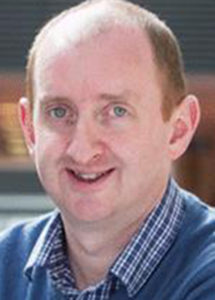 GERARD CLARKE is a lecturer in the Department of Psychiatry and Neurobehavioural Science and a faculty investigator in APC Microbiome Ireland. His research interests include translational biomarkers of stress-related neuropsychiatric disorders, the impact of the gut microbiome on brain and behaviour across the life span and microbial regulation of tryptophan metabolism. He is particularly interested in the advancing our understanding of how tryptophan degradation along the kynurenine pathway influences psychopathology and in evaluating novel therapeutic interventions which can reverse such deficits.
GERARD CLARKE is a lecturer in the Department of Psychiatry and Neurobehavioural Science and a faculty investigator in APC Microbiome Ireland. His research interests include translational biomarkers of stress-related neuropsychiatric disorders, the impact of the gut microbiome on brain and behaviour across the life span and microbial regulation of tryptophan metabolism. He is particularly interested in the advancing our understanding of how tryptophan degradation along the kynurenine pathway influences psychopathology and in evaluating novel therapeutic interventions which can reverse such deficits.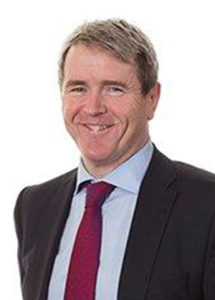 JOHN COONEY, MD, FRCPI, MRCPsych, qualified in 1986 from the RCSI and trained in internal medicine in the Federated Hospitals scheme in Dublin from which he obtained his membership of the Royal College of Physicians. He trained in Dublin for the Membership of the Royal College of Psychiatrists in the UK. He moved to St Bartholomew’s in London where he did his MD in the relationship between stress and psychiatric/psychological disorders and also trained in Cognitive behavioural Therapy at the Maudsley Hospital. His higher training in psychiatry was between St Bartholomew’s & the Maudsley Hospital. Following this he was appointed as a senior lecturer/ consultant Psychiatrist between Guy’s Hospital & Lewisham in South London. He returned to work as a specialist in Mood Disorders in St Patrick’s in Dublin before taking up his current role as consultant in the Psychological Medicine Service focusing on the relationship between physical & mental health.
JOHN COONEY, MD, FRCPI, MRCPsych, qualified in 1986 from the RCSI and trained in internal medicine in the Federated Hospitals scheme in Dublin from which he obtained his membership of the Royal College of Physicians. He trained in Dublin for the Membership of the Royal College of Psychiatrists in the UK. He moved to St Bartholomew’s in London where he did his MD in the relationship between stress and psychiatric/psychological disorders and also trained in Cognitive behavioural Therapy at the Maudsley Hospital. His higher training in psychiatry was between St Bartholomew’s & the Maudsley Hospital. Following this he was appointed as a senior lecturer/ consultant Psychiatrist between Guy’s Hospital & Lewisham in South London. He returned to work as a specialist in Mood Disorders in St Patrick’s in Dublin before taking up his current role as consultant in the Psychological Medicine Service focusing on the relationship between physical & mental health.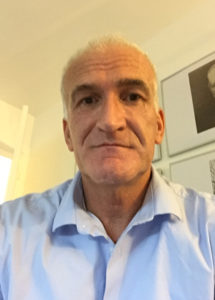 GEAROID FITZGERALD was a Consultant Psychiatrist in Psychotherapy in Yorkshire for 25 years up to his retirement in February 2018. For 13 years he led a specialist service for doctors in difficulty who were training which was funded by the Yorkshire Deanery. The service was called Take Time and over the years has seen 1600 doctors in difficulty. It is a self-referral service using a psychoanalytic model for the initial consultations and short term therapy. It is one of the few specialist services in the UK to continue and has indeed grown as demand has increased. He led the development of Balint groups in Leeds for all grades of doctors and has been delighted to be a part of developing Balint in Ireland, Greece and Pakistan. He is the Vice President of the UK Balint Society. He is now a psychoanalyst in private practice half time.
GEAROID FITZGERALD was a Consultant Psychiatrist in Psychotherapy in Yorkshire for 25 years up to his retirement in February 2018. For 13 years he led a specialist service for doctors in difficulty who were training which was funded by the Yorkshire Deanery. The service was called Take Time and over the years has seen 1600 doctors in difficulty. It is a self-referral service using a psychoanalytic model for the initial consultations and short term therapy. It is one of the few specialist services in the UK to continue and has indeed grown as demand has increased. He led the development of Balint groups in Leeds for all grades of doctors and has been delighted to be a part of developing Balint in Ireland, Greece and Pakistan. He is the Vice President of the UK Balint Society. He is now a psychoanalyst in private practice half time.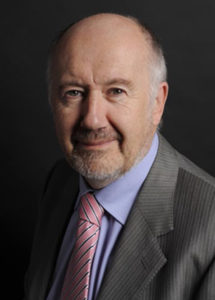 GUY GOODWIN, DPhil, FMedSci is Emeritus Professor of Psychiatry at the University of Oxford, Oxford, UK. He completed his medical degree and DPhil in physiology at the University of Oxford and, following training in psychiatry, became a Clinical Scientist and Consultant Psychiatrist at the MRC Brain Metabolism Unit at the Royal Edinburgh Hospital, Edinburgh, UK. His research interests are in the treatment of bipolar disorder and the application of neuroscience in understanding the neurobiology of mood disorders, with a focus on developing new treatments. He has been a lead investigator in clinical trials for mood disorder, including the BALANCE and CEQUEL studies. His current interest is the potential to improve treatment using new technology. He has served as a member of the Wellcome Trust Neurosciences Panel, the Council of the British Association for Psychopharmacology, the Clinical Fellowships Panel and Advisory Board of the Medical Research Council, INSERM’s ANR panel. He is a Fellow of the American College of Neuropsychopharmacology, and has previously held the position of President of the British Association for Psychopharmacology (2004–2005). He is past president of the European College of Neuropsychopharmacology (ECNP) and a Senior Investigator on the faculty of UK National Institute for Health Research (NIHR). He is a Thomson Reuters highly cited researcher (top 1% in field).
GUY GOODWIN, DPhil, FMedSci is Emeritus Professor of Psychiatry at the University of Oxford, Oxford, UK. He completed his medical degree and DPhil in physiology at the University of Oxford and, following training in psychiatry, became a Clinical Scientist and Consultant Psychiatrist at the MRC Brain Metabolism Unit at the Royal Edinburgh Hospital, Edinburgh, UK. His research interests are in the treatment of bipolar disorder and the application of neuroscience in understanding the neurobiology of mood disorders, with a focus on developing new treatments. He has been a lead investigator in clinical trials for mood disorder, including the BALANCE and CEQUEL studies. His current interest is the potential to improve treatment using new technology. He has served as a member of the Wellcome Trust Neurosciences Panel, the Council of the British Association for Psychopharmacology, the Clinical Fellowships Panel and Advisory Board of the Medical Research Council, INSERM’s ANR panel. He is a Fellow of the American College of Neuropsychopharmacology, and has previously held the position of President of the British Association for Psychopharmacology (2004–2005). He is past president of the European College of Neuropsychopharmacology (ECNP) and a Senior Investigator on the faculty of UK National Institute for Health Research (NIHR). He is a Thomson Reuters highly cited researcher (top 1% in field).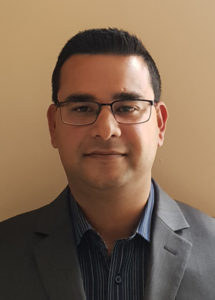 NAVROOP JOHNSON is a consultant psychiatrist in general adult mental health services in Co. Kerry. He finished his medical graduation in India and engaged in rural medicine for 2 years before moving to Ireland to pursue his basic and higher training in psychiatry. His BST in psychiatry was in and around Dublin. He finished his psychiatry membership exams, with the Royal College of Psychiatrists UK, in 2009. He then successfully attained an HST with the College of Psychiatrists of Ireland in 2010. He finished his HST in 2013 and was successful in attaining a Consultant Psychiatrist post straight after in University Hospital Kerry. He has been active regarding service development in this post and was instrumental in bringing DBT as a service to his catchment area in South Kerry, having attained his training in DBT in 2012. He is an active member of the Personality Disorders Special Interest Group in College of Psychiatrists Ireland. He sought formal training in perinatal psychiatry as well in 2017 in response to growing need for same. He remains committed to teaching and training junior staff. He also is keen in management and leadership aspect of his role and is currently undertaking a post-masters course in Healthcare Leadership called Leading Care 1.
NAVROOP JOHNSON is a consultant psychiatrist in general adult mental health services in Co. Kerry. He finished his medical graduation in India and engaged in rural medicine for 2 years before moving to Ireland to pursue his basic and higher training in psychiatry. His BST in psychiatry was in and around Dublin. He finished his psychiatry membership exams, with the Royal College of Psychiatrists UK, in 2009. He then successfully attained an HST with the College of Psychiatrists of Ireland in 2010. He finished his HST in 2013 and was successful in attaining a Consultant Psychiatrist post straight after in University Hospital Kerry. He has been active regarding service development in this post and was instrumental in bringing DBT as a service to his catchment area in South Kerry, having attained his training in DBT in 2012. He is an active member of the Personality Disorders Special Interest Group in College of Psychiatrists Ireland. He sought formal training in perinatal psychiatry as well in 2017 in response to growing need for same. He remains committed to teaching and training junior staff. He also is keen in management and leadership aspect of his role and is currently undertaking a post-masters course in Healthcare Leadership called Leading Care 1.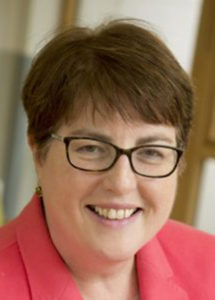 MIRIAM KENNEDY is a dual qualified Consultant Psychiatrist in General Adult psychiatry and Later Life (over 65) with a particular interest in Mood Disorders and Depression. With an additional doctorate in medical physiology and a qualification in interpersonal psychotherapy, her approach emphasises a biopsychosocial model of treatment. She works in Highfield Healthcare in acute inpatient and (new) general adult day hospital services, and also serves a later life long term care group. A senior lecturer at RCSI and TCD (honorary), Dr Kennedy has wide experience in education, teaching and learning at undergraduate and postgraduate levels. Research and professional interests include Capacity and Consent to treatment (Human rights) and medical education. In August 2017 she took up the additional role of Director of Communication and Public Education at the College of Psychiatrists of Ireland.
MIRIAM KENNEDY is a dual qualified Consultant Psychiatrist in General Adult psychiatry and Later Life (over 65) with a particular interest in Mood Disorders and Depression. With an additional doctorate in medical physiology and a qualification in interpersonal psychotherapy, her approach emphasises a biopsychosocial model of treatment. She works in Highfield Healthcare in acute inpatient and (new) general adult day hospital services, and also serves a later life long term care group. A senior lecturer at RCSI and TCD (honorary), Dr Kennedy has wide experience in education, teaching and learning at undergraduate and postgraduate levels. Research and professional interests include Capacity and Consent to treatment (Human rights) and medical education. In August 2017 she took up the additional role of Director of Communication and Public Education at the College of Psychiatrists of Ireland.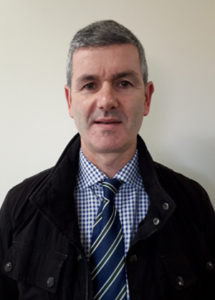 Dr. Kevin Kilbride graduated in medicine at UCD and undertook his Basic Specialist Psychiatric Training in the Eastern Health Board scheme. He completed Higher Specialist Training in General Adult Psychiatry in Manchester. He was Consultant Adult Psychiatrist in east Manchester before returning to Dublin in 2005 as Consultant Psychiatrist in the Programme for the Homeless, which is affiliated with the Phoenix Care Centre.
Dr. Kevin Kilbride graduated in medicine at UCD and undertook his Basic Specialist Psychiatric Training in the Eastern Health Board scheme. He completed Higher Specialist Training in General Adult Psychiatry in Manchester. He was Consultant Adult Psychiatrist in east Manchester before returning to Dublin in 2005 as Consultant Psychiatrist in the Programme for the Homeless, which is affiliated with the Phoenix Care Centre.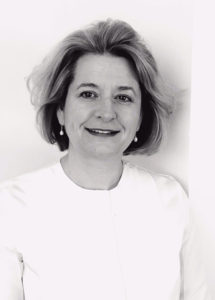 AOIBHINN LYNCH MD, MRCPsych, MSc (Medical Education) is a Consultant in Old Age Psychiatry in Dublin North City/North West and UCD Associate Clinical Professor. She is currently Chief Examiner for The College of Psychiatrists of Ireland.
AOIBHINN LYNCH MD, MRCPsych, MSc (Medical Education) is a Consultant in Old Age Psychiatry in Dublin North City/North West and UCD Associate Clinical Professor. She is currently Chief Examiner for The College of Psychiatrists of Ireland.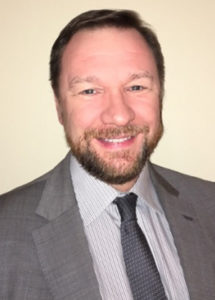 LORCAN MARTIN is Director of Professional Competence in the College of Psychiatrists of Ireland. He is a Consultant in General Adult Psychiatry with Longford/Westmeath Mental Health Services. He trained in Trinity College and with the Eastern Health Board as was. His special area of interest is greater integration of mental health services into the community and he has been instrumental in developing many new initiatives in this regard including a Primary Care Liaison Service, a service for deaf clients, an ongoing public mental health awareness programme and a consultative group so that service users/carers may be involved in service development. He has presented these projects and others at a number of international conferences. Dr Martin has also been involved in training programmes in the area of mental health for a number of statutory and voluntary agencies, and also has a particular interest in the clinical training and examination of non-consultant hospital doctors working in psychiatry.
LORCAN MARTIN is Director of Professional Competence in the College of Psychiatrists of Ireland. He is a Consultant in General Adult Psychiatry with Longford/Westmeath Mental Health Services. He trained in Trinity College and with the Eastern Health Board as was. His special area of interest is greater integration of mental health services into the community and he has been instrumental in developing many new initiatives in this regard including a Primary Care Liaison Service, a service for deaf clients, an ongoing public mental health awareness programme and a consultative group so that service users/carers may be involved in service development. He has presented these projects and others at a number of international conferences. Dr Martin has also been involved in training programmes in the area of mental health for a number of statutory and voluntary agencies, and also has a particular interest in the clinical training and examination of non-consultant hospital doctors working in psychiatry.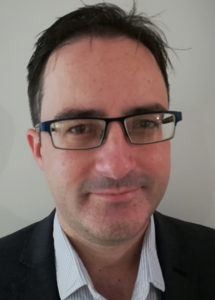 PAUL MATTHEWS is a General Adult Psychiatrist with Kildare West Wicklow Mental Health Service and Clinical Senior Lecturer with the Royal College of Surgeons in Ireland. He studied medicine at the University of Oxford where he completed his doctorate in neuropathology and gene expression in schizophrenia and mood disorders. He completed higher training in General Adult and Liaison Psychiatry on the Oxford training scheme and worked in Oxfordshire and Buckinghamshire in General Adult Psychiatry and Early Intervention in Psychosis. Paul has an interest in the treatment of personality disorders and previously worked in the Oxfordshire Complex Needs Service Therapeutic Community.
PAUL MATTHEWS is a General Adult Psychiatrist with Kildare West Wicklow Mental Health Service and Clinical Senior Lecturer with the Royal College of Surgeons in Ireland. He studied medicine at the University of Oxford where he completed his doctorate in neuropathology and gene expression in schizophrenia and mood disorders. He completed higher training in General Adult and Liaison Psychiatry on the Oxford training scheme and worked in Oxfordshire and Buckinghamshire in General Adult Psychiatry and Early Intervention in Psychosis. Paul has an interest in the treatment of personality disorders and previously worked in the Oxfordshire Complex Needs Service Therapeutic Community.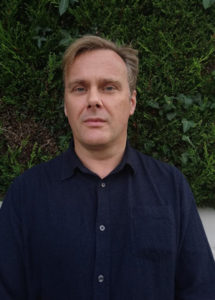 CONOR O’NEILL is a Consultant Forensic Psychiatrist at the Central Mental Hospital, Dundrum. He trained in Ireland and Australia and since 2006 has developed and led the Prison Inreach and Court Liaison Service (PICLS), at Cloverhill, Ireland’s main remand prison. He is a member of the advisory group for the Quality Network for Prison Mental Health Services of the UK Royal College of Psychiatrists and a Senior Lecturer in Forensic Psychiatry at Trinity College, Dublin.
CONOR O’NEILL is a Consultant Forensic Psychiatrist at the Central Mental Hospital, Dundrum. He trained in Ireland and Australia and since 2006 has developed and led the Prison Inreach and Court Liaison Service (PICLS), at Cloverhill, Ireland’s main remand prison. He is a member of the advisory group for the Quality Network for Prison Mental Health Services of the UK Royal College of Psychiatrists and a Senior Lecturer in Forensic Psychiatry at Trinity College, Dublin.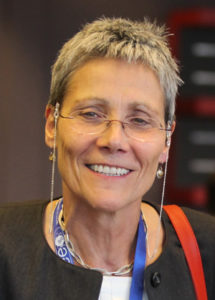 TRUDIE ROBERTS BSc, MBChB, PhD, FRCP, FHEA, NTF, Hon FAcadMEd; Director, Leeds Institute of Medical Education, University of Leeds, England; President, AMEE – Association of Medical Education in Europe. Professor Roberts graduated from Manchester with a degree in Medicine and a BSc in Anatomy. She undertook her early medical training in Manchester and research in Manchester and the Karolinska Institute, Sweden. In 1995 she was appointed Senior Lecturer in Transplant Immunology at the University of Manchester. In 2000 she was appointed Professor of Medical Education at the University of Leeds. She was awarded a National Teaching Fellowship in 2006. In 2009 she was appointed Director of the Leeds Institute of Medical Education. She was a council member of the General Medical Council (2009 – 2012) and Chair of the Association for the Study of Medical Education until July 2013. She was a council member for the Royal College of Physicians of London (2010 – 2013) and is currently a Censor for the College. In September 2013 she became President of AMEE (*). Professor Roberts’s main interests and expertise are in the areas of assessment of competence, professionalism, and transitions in training and education. In 2013 she was awarded a Fellowship of the Academy of Medical Educators. In January 2017 she received the MILES award (**) at the Asia Pacific Medical Education Conference. She is married to a surgeon, has two children and dreams of owning a Subaru WRX.
TRUDIE ROBERTS BSc, MBChB, PhD, FRCP, FHEA, NTF, Hon FAcadMEd; Director, Leeds Institute of Medical Education, University of Leeds, England; President, AMEE – Association of Medical Education in Europe. Professor Roberts graduated from Manchester with a degree in Medicine and a BSc in Anatomy. She undertook her early medical training in Manchester and research in Manchester and the Karolinska Institute, Sweden. In 1995 she was appointed Senior Lecturer in Transplant Immunology at the University of Manchester. In 2000 she was appointed Professor of Medical Education at the University of Leeds. She was awarded a National Teaching Fellowship in 2006. In 2009 she was appointed Director of the Leeds Institute of Medical Education. She was a council member of the General Medical Council (2009 – 2012) and Chair of the Association for the Study of Medical Education until July 2013. She was a council member for the Royal College of Physicians of London (2010 – 2013) and is currently a Censor for the College. In September 2013 she became President of AMEE (*). Professor Roberts’s main interests and expertise are in the areas of assessment of competence, professionalism, and transitions in training and education. In 2013 she was awarded a Fellowship of the Academy of Medical Educators. In January 2017 she received the MILES award (**) at the Asia Pacific Medical Education Conference. She is married to a surgeon, has two children and dreams of owning a Subaru WRX. JOANNE RYAN is a multi-award winning theatre maker who loves to make quality, ambitious, socially-engaged work with a particular interest in the relationship between arts and health. Her solo multimedia show Eggsistentialism, which explores her journey to a decision about whether or not to have a child through the prism of Ireland’s reproductive health history, has been presented to critical acclaim in Ireland, Edinburgh, London, Liverpool, Cyprus, Malaysia and Australia. It has won a number of awards including a Lustrum Award, Best Storytelling Bouquet and The Melbourne Fringe Award at Edinburgh Festival, The Strollers Touring Award and most recently The Critics’ Pick Award at Sydney Fringe Festival. She is an active member of several artist networks and in December 2017 was awarded Civic Honours by Limerick City and County Council in recognition of her international success and contribution to theatre and the arts in Limerick.
JOANNE RYAN is a multi-award winning theatre maker who loves to make quality, ambitious, socially-engaged work with a particular interest in the relationship between arts and health. Her solo multimedia show Eggsistentialism, which explores her journey to a decision about whether or not to have a child through the prism of Ireland’s reproductive health history, has been presented to critical acclaim in Ireland, Edinburgh, London, Liverpool, Cyprus, Malaysia and Australia. It has won a number of awards including a Lustrum Award, Best Storytelling Bouquet and The Melbourne Fringe Award at Edinburgh Festival, The Strollers Touring Award and most recently The Critics’ Pick Award at Sydney Fringe Festival. She is an active member of several artist networks and in December 2017 was awarded Civic Honours by Limerick City and County Council in recognition of her international success and contribution to theatre and the arts in Limerick.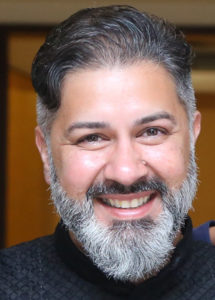 ADITYA SHARMA Dr Adi Sharma is a Clinical Senior Lecturer and Hon Consultant in child and adolescent psychiatry at Institute of Neuroscience, Newcastle University and Northumberland Tyne and Wear NHS Foundation Trust. His clinical academic interests include the epidemiology of and risk factors for the development of Early Onset Bipolar Disorders to improve psychosocial outcomes. Adi trained as a Clinical Lecturer with Prof Le Couteur at Newcastle developing expertise in assessment and management of youth with complex neurodevelopmental disorders particularly youth with ASD. He furthered his experience by training with Prof Kiki Chang (Stanford University, USA), Prof Barbara Geller (Washington University at St Louis, USA) and Prof Ellen Leibenluft (NIH, USA) in the field of Bipolar Disorder. Adi has a PhD in ‘Neurocognition and emotion labeling in bipolar offspring’ for which he was awarded the Margaret Davenport award by the faculty of child and adolescent psychiatry (RCPsych). He was chief investigator for the first Surveillance study of the incidence of Narrow Phenotype Bipolar I Disorder in the British Isles. Currently Adi is chief investigator for the first paediatric bipolar disorder trial in the UK. This innovative project funded by the Research for Patient Benefit funding stream of NIHR is using a mixed methods approach to assess the acceptability and feasibility of using the Family Focussed Treatment for Adolescents with Bipolar Disorder (FFT-A UK version). He is also a co-applicant on an NIHR HTA trial: Clinical and cost effectiveness of a parent mediated intervention to reduce challenging behaviour in pre-schoolers with moderate to severe learning disability: a randomised controlled trial. Adi has been using participatory design to co-produce digital health technologies to improve outcomes for Early Onset Bipolar Disorder. In addition, Adi in his role as CAMHS Champion for the North East and North Cumbria Clinical Research Network has developed and is chair of the Paediatric Psychopharmacology Trials Steering Group which has links with Newcastle University, mental health and acute trusts to facilitate industry sponsored and investigator led psychopharmacology trials.
ADITYA SHARMA Dr Adi Sharma is a Clinical Senior Lecturer and Hon Consultant in child and adolescent psychiatry at Institute of Neuroscience, Newcastle University and Northumberland Tyne and Wear NHS Foundation Trust. His clinical academic interests include the epidemiology of and risk factors for the development of Early Onset Bipolar Disorders to improve psychosocial outcomes. Adi trained as a Clinical Lecturer with Prof Le Couteur at Newcastle developing expertise in assessment and management of youth with complex neurodevelopmental disorders particularly youth with ASD. He furthered his experience by training with Prof Kiki Chang (Stanford University, USA), Prof Barbara Geller (Washington University at St Louis, USA) and Prof Ellen Leibenluft (NIH, USA) in the field of Bipolar Disorder. Adi has a PhD in ‘Neurocognition and emotion labeling in bipolar offspring’ for which he was awarded the Margaret Davenport award by the faculty of child and adolescent psychiatry (RCPsych). He was chief investigator for the first Surveillance study of the incidence of Narrow Phenotype Bipolar I Disorder in the British Isles. Currently Adi is chief investigator for the first paediatric bipolar disorder trial in the UK. This innovative project funded by the Research for Patient Benefit funding stream of NIHR is using a mixed methods approach to assess the acceptability and feasibility of using the Family Focussed Treatment for Adolescents with Bipolar Disorder (FFT-A UK version). He is also a co-applicant on an NIHR HTA trial: Clinical and cost effectiveness of a parent mediated intervention to reduce challenging behaviour in pre-schoolers with moderate to severe learning disability: a randomised controlled trial. Adi has been using participatory design to co-produce digital health technologies to improve outcomes for Early Onset Bipolar Disorder. In addition, Adi in his role as CAMHS Champion for the North East and North Cumbria Clinical Research Network has developed and is chair of the Paediatric Psychopharmacology Trials Steering Group which has links with Newcastle University, mental health and acute trusts to facilitate industry sponsored and investigator led psychopharmacology trials. CLEO VAN VELSEN, Member British Institute of Psychoanalysis. Until May 2017 Dr Van Velsen was Consultant Psychiatrist in Forensic Psychotherapy based within the Forensic Personality Disorder service of the East London NHS Foundation Trust. Her post was as a Responsible Clinician in a Community of Communities Accredited Therapeutic Community, which specialises in forensic personality disorder in men. Most of the patients are transferred prisoners. She trained as a Doctor in London and went on to train as a Psychiatrist and specialised in Psychotherapy. She was Consultant Psychotherapist at the Maudsley Hospital for five years. She is a member of the British Institute of Psychoanalysis.
CLEO VAN VELSEN, Member British Institute of Psychoanalysis. Until May 2017 Dr Van Velsen was Consultant Psychiatrist in Forensic Psychotherapy based within the Forensic Personality Disorder service of the East London NHS Foundation Trust. Her post was as a Responsible Clinician in a Community of Communities Accredited Therapeutic Community, which specialises in forensic personality disorder in men. Most of the patients are transferred prisoners. She trained as a Doctor in London and went on to train as a Psychiatrist and specialised in Psychotherapy. She was Consultant Psychotherapist at the Maudsley Hospital for five years. She is a member of the British Institute of Psychoanalysis.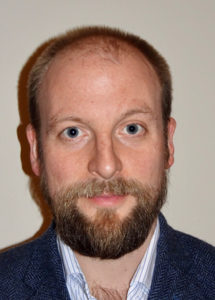 DAMIAN SMITH is a Senior Registrar in Forensic and General Adult Psychiatry. Prior to commencing the CPsychI higher training scheme in 2015, Dr Smith worked as a registrar in Forensic Psychiatry in both Ireland and Melbourne, Australia. In both jurisdictions he developed an interest in prison psychiatry and has published peer-reviewed articles based on projects in young offender, remand and sentenced prison populations. One such project at Mountjoy Prison was awarded a Certificate of Special Recognition at the Health Service Excellence Awards 2017.
DAMIAN SMITH is a Senior Registrar in Forensic and General Adult Psychiatry. Prior to commencing the CPsychI higher training scheme in 2015, Dr Smith worked as a registrar in Forensic Psychiatry in both Ireland and Melbourne, Australia. In both jurisdictions he developed an interest in prison psychiatry and has published peer-reviewed articles based on projects in young offender, remand and sentenced prison populations. One such project at Mountjoy Prison was awarded a Certificate of Special Recognition at the Health Service Excellence Awards 2017.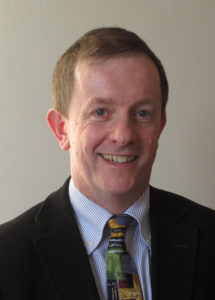 GREG SWANWICK, Prof, is the current Dean of Education with the College of Psychiatrists of Ireland and a Consultant Psychiatrist in the Psychiatry of Old Age based at Tallaght University Hospital.
GREG SWANWICK, Prof, is the current Dean of Education with the College of Psychiatrists of Ireland and a Consultant Psychiatrist in the Psychiatry of Old Age based at Tallaght University Hospital.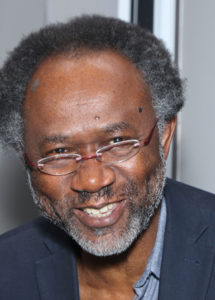 FEMI OYEBODE is Consultant Psychiatrist at the National Centre for Mental Health Birmingham & Professor of Psychiatry at the University of Birmingham. He is author of Sims’ Symptoms in the Mind – Textbook of Descriptive Psychopathology 6th edition.
FEMI OYEBODE is Consultant Psychiatrist at the National Centre for Mental Health Birmingham & Professor of Psychiatry at the University of Birmingham. He is author of Sims’ Symptoms in the Mind – Textbook of Descriptive Psychopathology 6th edition.